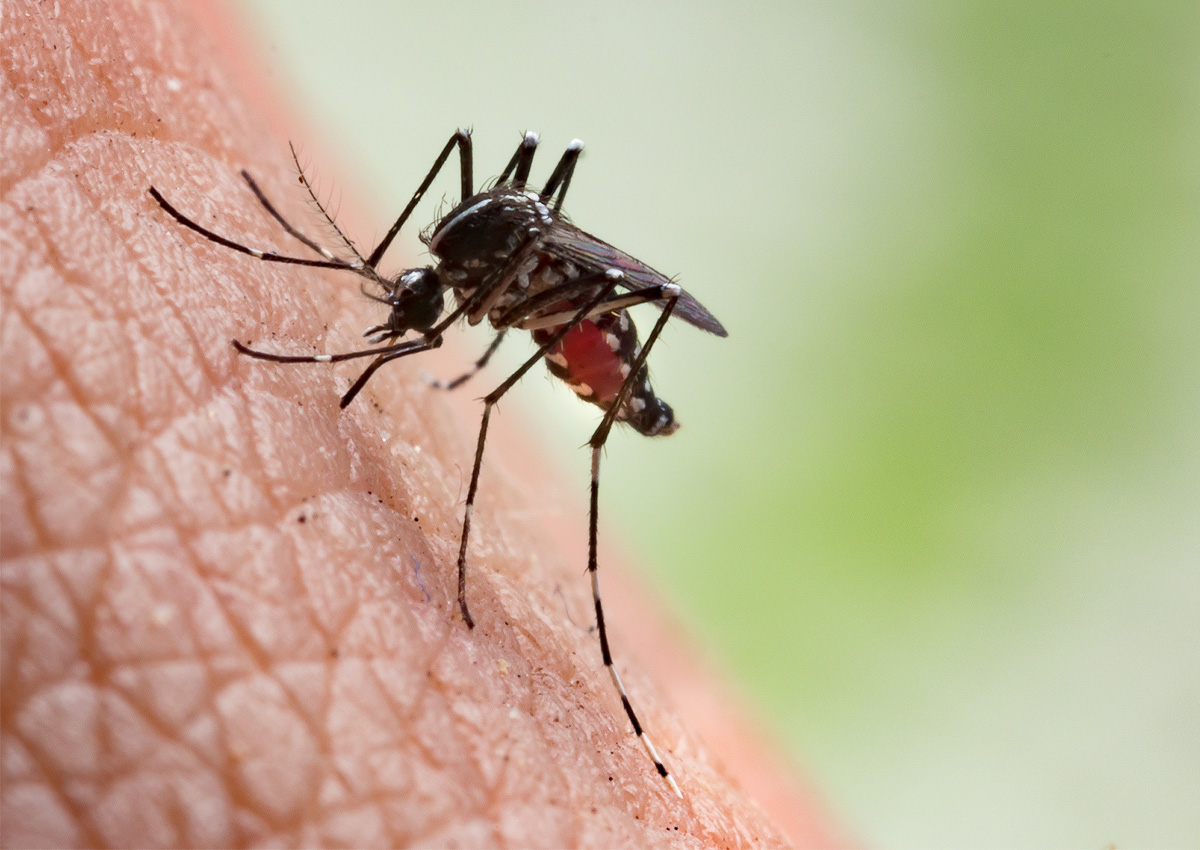
Study Finds CRISPR Could Render Mosquitoes Infertile, Reducing Spread of Diseases
August 25, 2021| |
Using CRISPR-Cas9, researchers at the Army's Institute for Collaborative Biotechnologies and the University of California Santa Barbara were able to target a specific gene tied to fertility in male mosquitoes. The study, published in the Proceedings of the National Academy of Sciences, discerned how a mutation can suppress the fertility of female mosquitoes.
The research team mutated a gene in mosquitoes that specifically caused male sterility without otherwise impacting the insects' health. Using gene editing in Aedes aegypti mosquitoes, the researchers found that the mutant male mosquitoes produced no sperm, and unlike in previous efforts, the sterile studs were completely healthy. The team was unsure whether sperm was needed to render female mosquitoes infertile, or whether the transfer of seminal fluid was all it took. In one experiment, they introduced 15 mutant males into a group of 15 females for 24 hours. Then they swapped the males for 15 wild-type males and left them there.
The researchers found that all the females remained sterile, confirming that males could suppress female fertility without producing sperm. Next, the researchers looked into how timing played into the effect. They exposed females to mutant males for different lengths of time. They noticed little difference after 30 minutes, but female fertility quickly dropped after that. They noted that females copulated twice on average, even during the first 10 minutes, indicating that females have to mate with many sterile males before being rendered infertile themselves.
The research team observed that combining females and males for four hours cut female fertility to 20% of normal levels. After eight hours, the numbers began leveling out around 10%.
For more details, read the article on the Army Research Laboratory website.
| |
You might also like:
- First GM Mosquitoes Deployed in the United States
- GM Mosquitoes Key to Stopping Zika Virus Spread
- Oxitec's Friendly™ Mosquito Approval Published in Federal Register; Unanimous Approvals in State of Florida
Biotech Updates is a weekly newsletter of ISAAA, a not-for-profit organization. It is distributed for free to over 22,000 subscribers worldwide to inform them about the key developments in biosciences, especially in biotechnology. Your support will help us in our mission to feed the world with knowledge. You can help by donating as little as $10.
-
See more articles:
-
News from Around the World
- The Impact of Gene Technology in Animal Agriculture and Food Production
- Texas A&M Researchers Engineer Good Bacteria to Aid in Combating Disease
- Technology Developers Share Commercialization Experiences with Filipino Scientists
- NTU Researchers Identify How Xanthomonas Bacteria Infect Plants
- India Eases Rules for Import of GM Soya Cake, Benefits Farmers
- European Commission Authorizes 10 GM Crops for Food and Feed
- UK Report Compares EU Approaches on Food Safety Regulation of Novel Foods and GMOs with Other Countries
-
Research Highlights
- Plant Immune Sensors Found to Navigate Against Invading Microbes Inside Plant Cells
-
Plant
- MHLW Japan Close to Commercial Approval of the First Genome-edited Fish
- Coalition of NGOs Outline Principles for Responsible Governance of Gene Editing
- Study Finds CRISPR Could Render Mosquitoes Infertile, Reducing Spread of Diseases
- High-oleic Tobacco Seed Oil for Bio-diesel Produced Using CRISPR-Cas9
-
Read the latest: - Biotech Updates (February 18, 2026)
- Gene Editing Supplement (January 28, 2026)
- Gene Drive Supplement (February 22, 2023)
-
Subscribe to BU: - Share
- Tweet

